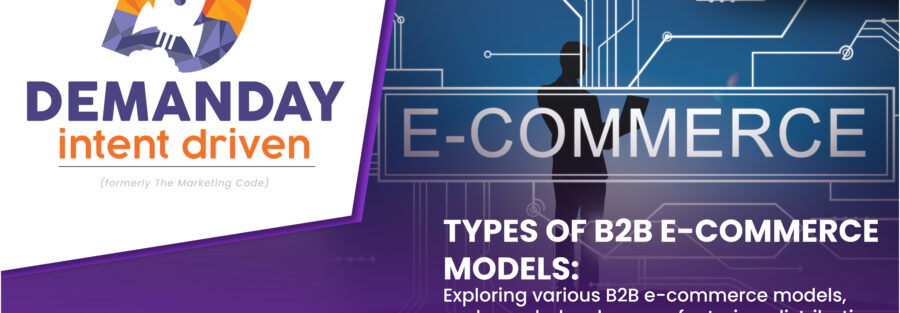Types of B2B Ecommerce Models
B2B ecommerce, or business-to-business electronic commerce, involves the online exchange of goods, services, or information between businesses. There are several B2B e-commerce models, each catering to specific business needs and characteristics. Here are some of the main types of B2B e-commerce models:
- Wholesale E-commerce: Wholesale e-commerce involves selling products in bulk to retailers or other businesses. Wholesalers typically offer discounted prices to buyers who purchase large quantities. This model is suitable for businesses that produce or source products in large quantities and want to reach a broader market of retailers or resellers.
- Manufacturing E-commerce: In this model, manufacturing companies sell their products directly to other businesses or distributors through an online platform. By selling directly, manufacturers can eliminate intermediaries and maintain more control over their distribution and pricing strategies.
- Distribution E-commerce: Distribution e-commerce focuses on the efficient distribution of products from manufacturers to retailers or end customers. Distributors act as intermediaries, buying products from manufacturers in bulk and then selling them in smaller quantities to retailers. An online distribution model streamlines the ordering and fulfillment processes.
- Procurement E-commerce: Procurement e-commerce is the process of businesses purchasing goods or services from suppliers through an online platform. This model is often used in industries where businesses need to procure various inputs and resources regularly, such as office supplies, raw materials, or equipment.
- Marketplace E-commerce: Marketplaces are platforms that bring together multiple buyers and sellers from various industries. Businesses can list their products or services on these platforms, and buyers can compare different options and choose the ones that best suit their needs. Examples of B2B marketplaces include Alibaba, Amazon Business, and Thomasnet.
- Vertical E-commerce: Vertical e-commerce platforms cater to specific industries or sectors, addressing their unique requirements. These platforms may offer specialized products, services, or solutions tailored to a particular business niche.
- Platform-as-a-Service (PaaS) E-commerce: PaaS e-commerce platforms provide a framework or infrastructure that businesses can use to build their B2B e-commerce websites or applications. These platforms offer customization options and features, allowing businesses to create a unique online presence.
- Subscription-based E-commerce: Some B2B businesses offer subscription-based e-commerce models, where customers pay a recurring fee to access products or services regularly. This model is often used for software services, content platforms, or cloud-based solutions.
- Group Buying E-commerce: Group buying involves a group of businesses coming together to purchase products or services in bulk, which can lead to better pricing and discounts. Online platforms facilitate this model, enabling businesses to form purchasing groups easily.
Each B2B e-commerce model has its own advantages and is suited to specific business needs and market dynamics. Businesses should carefully assess their requirements, target audience, and industry trends before selecting the most appropriate B2B e-commerce model for their operations.



